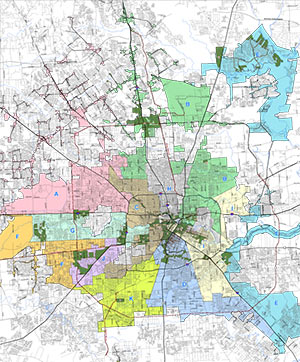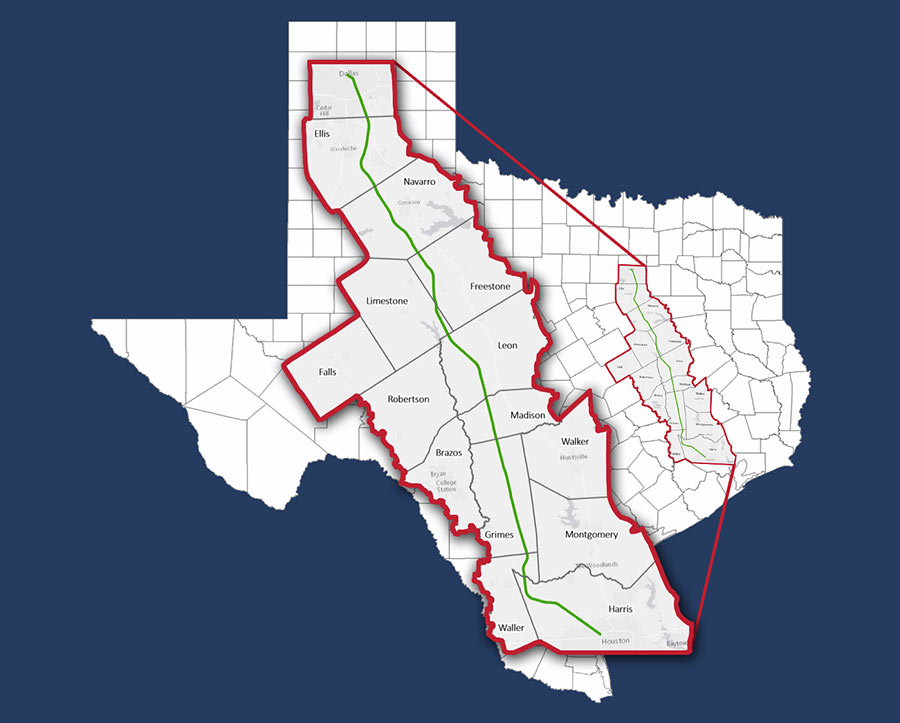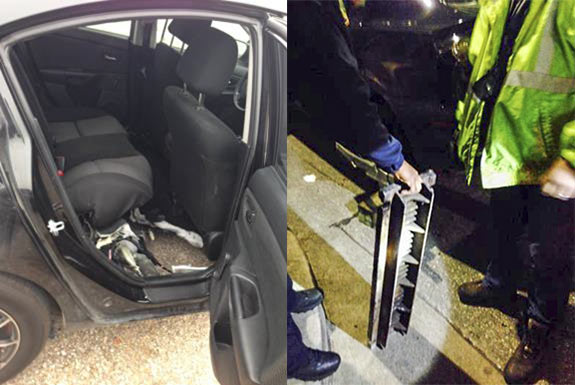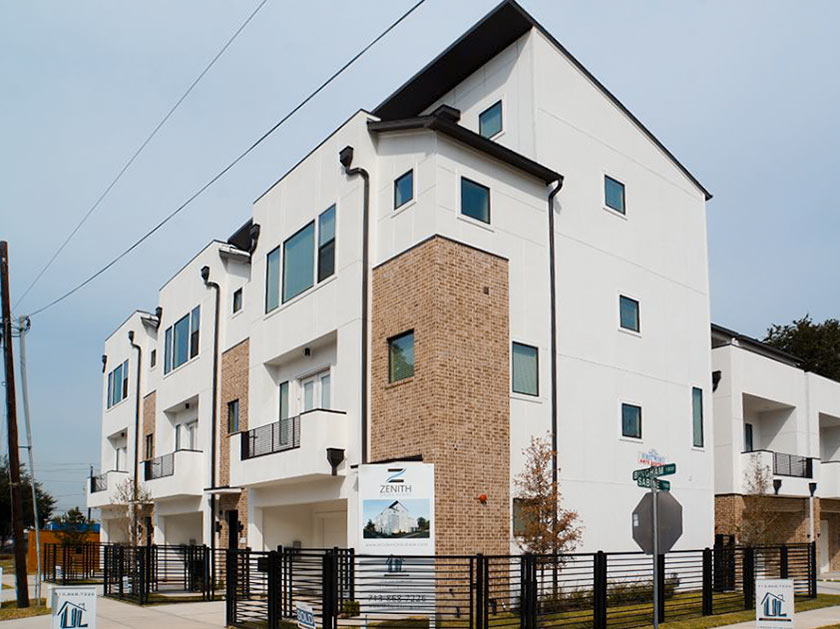POPULARIZING TIRZWATCHING AS A HOUSTON PASTIME  This week the Houston Chronicle editorial board called for TIRZ authorities to keep publicly accessible and up-to-date records, as well as to start recording videos of their meetings, as occurs with city council proceedings. The board says that the 27 TIRZs in Houston collected more than $100 million in 2015 — “about what the city spends on parks and libraries combined,” allowing some individual TIRZ management authorities “to take on projects with a region-wide impact.” Some Houstonians have already been keeping an eye trained on the TIRZ’s movements, cameras or no — last month residents of the Cosmopolitan condos (via Wayne Dolcefino) filed a criminal complaint alleging that members of the Uptown TIRZ had failed to keep records of meetings related to the purchase of land for the Post Oak bus lane project. Meanwhile, a group of residents on the flood-prone Memorial City TIRZ is preparing a lawsuit related to this week’s city council approval of new TIRZ board members. [Houston Chronicle; previously on Swamplot] Map of Houston Tax Increment Reinvestment Zoness: City of Houston
This week the Houston Chronicle editorial board called for TIRZ authorities to keep publicly accessible and up-to-date records, as well as to start recording videos of their meetings, as occurs with city council proceedings. The board says that the 27 TIRZs in Houston collected more than $100 million in 2015 — “about what the city spends on parks and libraries combined,” allowing some individual TIRZ management authorities “to take on projects with a region-wide impact.” Some Houstonians have already been keeping an eye trained on the TIRZ’s movements, cameras or no — last month residents of the Cosmopolitan condos (via Wayne Dolcefino) filed a criminal complaint alleging that members of the Uptown TIRZ had failed to keep records of meetings related to the purchase of land for the Post Oak bus lane project. Meanwhile, a group of residents on the flood-prone Memorial City TIRZ is preparing a lawsuit related to this week’s city council approval of new TIRZ board members. [Houston Chronicle; previously on Swamplot] Map of Houston Tax Increment Reinvestment Zoness: City of Houston





Sylvester Turner takes a lot of money from MetroNational (a big developer) and allies. He is seeming to be very corrupt. He had to break a city law on the books for 17 years to dismiss the neighborhood TIRZ rep. This corruption is awful!
A good bet is that any scheme to get around taxpayers’ right to know where money is being spent and to have a say in it is probably a criminal enterprise. TIRZ’ fit this category. That responsible people have touted them is testament to their ability to overlook the interests of taxpayers in a democracy for their own purposes.
TIRZ can and have sold bonds secured by ad valorem taxes. Texas law says bonds secured by ad valorem taxes must have voter approval TIRZ 16 ( Uptown) has bonding capacity of $155M and has or will use most of that to fund the highly controversial Dedicated Bus Lane down the middle of Post Oak Blvd. These are all appointed people making these decisions. Jerry Brown , Governor of California, abolished TIRZ ( TIF’s) when he found out their total debt had reached $33B.
Even though I think of myself as a well-informed voter, I had no idea that there were 27 TIRZs that collected nearly $100 million. That is a LOT of cash on a municipal basis and it goes Lord knows where in a more opaque fashion than the City spends its “public” money, which is pretty muddy as it is.
.
As a believer in open government and transparency, I’d say videotaping the TIRZ proceedings and making more of their stuff available online is a good first step. Let the sunshine in and let’s see where the money is being spent.
I live near TIRZ 18, the worst performing TIRZ in Houston. Its interesting hearing about the issues of $100 MM budget being spent, when i am worried how our area spends it’s $5MM budget. Does Houston really need a TIRZ in an a well off area, or do we need them in areas only like TIRZ 18 wherer infrastructure is a huge issue?
I just looked at the east end (23) and the 5th ward (18) TIRZs. East end has $350 MM and 5th Ward has $85 MM. East End has embraced re-development and improved infrastructure in re-developing areas. 5th ward has abandoned re-developing areas and focuses all their money on the Lyons Avenue area (Deluxe Theater and Affordable Housing). Two different thought processes with very different outcomes.
Which is better and which one will last?
@ Mr. Clean: One could make the argument, I think, that a TIRZ in a major activity center could be justified. For example, the Downtown TIRZ enables downtown to be nicer and compete for conventions, tourism, and other benefits from a good image. That specific location serves as marketing for both downtown itself and the whole City, and there is some mutual benefit to ensuring that downtown is a nice place with appreciating land values and hence a functioning TIRZ. You could make that argument for a few other places as well, I think, but not very many; I would entertain the possibility of using such a mechanism to finance linear infrastructure such as parks or transit corridors.
Its much harder for me to understand the argument for why the East End or 5th Ward should have a TIRZ. Management Districts, okay, that makes sense; but I don’t see any grand strategy about TIRZs. Moreover, I am suspicious of politicians such as Garnet Coleman and their pet projects.
I dug around more in the City’s page about TIRZs and it is quite telling that some of them don’t even have a webpage, which just seems lazy to me.
.
The Midtown TIRZ (#2) has a nicely laid out webpage but I was surprised to find that it has 11 staff members listed. What do all of these people do? Digging further into the posted financials, I was astounded that almost 30% of their revenues goes to “district administration”. If this was viewed as a non-profit, the benchmark would be to spend no more than 10% on administrative overhead. If this is a for-profit business, 30% is ridiculously inefficient.
.
The Greater Houston (#24) one is so strange – it has a northern and southern component that almost have nothing to do with each other. Gerrymandering at its finest.
.
My net opinion is that TIRZs seem to be make work projects for someone to draw a paycheck from while remaining insulated from public scrutiny. To be slightly Machiavellian, if I were a Councilmember, it would be better to retain control over the budget dollars so that I could dole it out on projects, rather than let some faceless TIRZ control it.
If Turner keeps it up, he will find himself in federal prison. Just my thoughts.
@ Major Market: If you’re going to think in Machiavellian terms then I would hope that you can do better than that. Now, I have no personal experiences with the politics of TIRZ formation, but if we were to speculate on what was plausible:
.
1) Pet projects. For instance, if you put affordable housing in a councilmember’s district that is under threat of gentrification then perhaps that councilmember’s constituency can be maintained as the majority constituency. You don’t do any favors for them, but the councilmember’s career is more secure.
.
2) Reciprocity. Why would the councilmember representing Kingwood and Clear Lake not call foul? Well he gets his own pet projects in return. Or vice versa.
.
3) Kickbacks. These take many forms. Perhaps large campaign donors or lobbyists with a large-enough budget for steak dinners are awarded with targeted infrastructure which impacts their land values, real estate deals, are appointed as vendors, or their deadbeat nephew gets a job.
.
4) Conficts of Interest. It can be made very difficult to tell when a councilmember owns property which is affected by TIRZ projects.
.
Now…TBH I have taken my inspiration from Dallas, Austin, and San Antonio more than from Houston. Houston has its moments but is on the whole — in my informed opinion — less prone to outright corruption. Houston tends to be a bit more legalistic, less indictable, the way it approaches situations that might be considered unethical. But if we were to be Machiavellian…
.
If…
Re: Kickbacks. Brenda Stardig and mayor Turner have taken heavily from Jason Johnson and MetroNational and engineering firms like Klotz and Lockwood Andrews Newnam that are awarded contracts by TIRZ 17 and MetroNational. In return, the TIRZ pays for roads that benefit developments at expense of paying for drainage and anti flooding infrastructure. It’s very corrupt. Hopefully they will all go to jail.
In 5th Ward, the TIRZ Development is directly tied to land purchased by the management district and land owned by the councilman. When the people running the management district are driving around in $80k Mercedes, i wonder where a portion of that $85 million in the 5th ward TIRZ is going.
Affordable housing and TIRZ is another concern that is obviously tied with keeping the status quo for politicians. Rich folks dont want affordable housing because it reduces the value of property and schools in the neighborhood. Poor communities want affordable housing because it keeps the same politicians in power and push out Market Rate housing under the guise of Gentrification.
I respect people that fight against these trends and i wish them the best in their efforts, but man it seems like this will always be the way things are.
Corrupt quasi-governmental agencies abound in Houston. Port of Houston Authority. Houston Community College. Management Districts. Harris County Toll Road Authority. Harris County Flood Control District. Harris County Sports Authority. Many of these have had publicized scandals involving senior officials. Most of the graft is done quietly through property deals and contract awards to family or close business associates.
Another source of corruption is the multiple, duplicate layers of government. We have police departments for state, city, county, and schools. We have parks run solely by the county, located within city limits. We have numerous agencies building and maintaining public works projects. When you add all the layers up, it becomes such a confusing mess that 1) you cannot tell who is who when you go to vote and have 45 different offices up for election, most of which you have never heard of (like an HCC board member), so incumbents keep a steady advantage; and 2) you cannot tell who is responsible for what, and how it’s being paid for.